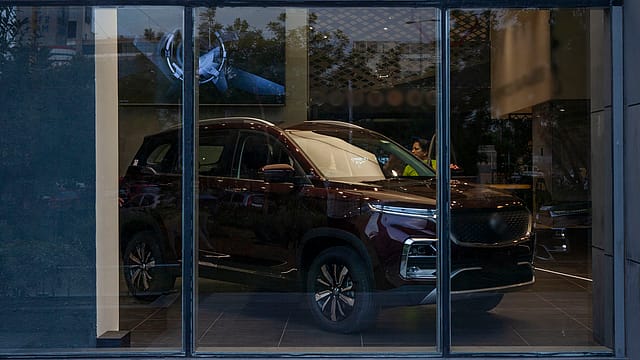Passenger vehicle retail sales see modest growth in April; CVs decline
ADVERTISEMENT

Retail sales of passenger vehicles (PV) grew 1.5% year-on-year to 3.5 lakh units in April 2025 compared with 3.44 lakh units sold in the same month last year, according to data released by the Federation of Automobile Dealers Associations (FADA).
The new financial year began on a modest note as overall auto retail sales in April grew by 3%. All categories except commercial vehicles closed in the green, with two-wheelers (2W), three-wheelers (3W), PV and tractors up 2.25%, 24.5%, 1.5% and 7.5% respectively, while CVs declined by 1%.
With the tariff war paused, stock markets staged a sharp pullback—alleviating investor concerns—and customers thus leveraged Chaitra Navratri, Akshay Tritiya, Bengali New Year, Baisakhi and Vishu to complete purchases, helping April end on a positive note, said FADA President C S Vigneshwar.
Two-wheeler retail volumes demonstrated a resilient up-cycle—growing 2.25% YoY—underscoring a stable demand environment amid mixed headwinds, according to FADA. “Dealers reported buoyant enquiry growth in rural areas post Rabi harvest, driven by strong crop yields, healthy reservoir levels and a favourable monsoon outlook, while wedding-season tailwinds sustained rural offtake. Urban demand remained robust, supported by new-model introductions, although elevated financing costs and OBD2B-linked price adjustments posed isolated bottlenecks,” said Vigneshwar.
Despite limited model introductions, the PV segment registered a 1.55% increase. "This performance reflects a discount-led market and elevated inventories—approximately a 50-day supply—amid cautious consumer sentiment that tempered enquiry-to-sale conversions. Sustained SUV demand underpinned volumes even as entry-level customers remained cautious, underscoring the need for OEMs to recalibrate production and reduce stock levels to mitigate deeper discounts and carrying costs at dealerships,” the dealers’ association said.
The commercial vehicle segment faced a 1.05% YoY decline following OEM-led price increases against stagnant freight rates and fleet utilisation. “Dealer feedback highlights that advance purchases in March resulted in elevated carryover stocks, while holiday calendars dampened fresh enquiries and delayed conversions—particularly in the small commercial vehicle cargo category, where price and product gaps have weighed heavily. Conversely, the bus segment exhibited resilience, underpinned by strong school-transport and staff-mobility demand. Although financing availability remains broadly stable, enhanced support for first-time users will be critical to reignite momentum,” said Vigneshwar.
In its near-term outlook, FADA said May’s agricultural cycle is concluding on a strong note, underpinned by healthy crop prices and robust mandi procurement. “The IMD’s forecast of an above-normal southwest monsoon bodes well for rural incomes, farm-sector growth and downstream demand, while a well-distributed rainy season is critical to containing food inflation. At the same time, Kantar’s Rural Barometer and GroupM data signal heightened consumer selectivity in rural India—household spending has outpaced income growth, and inflationary pressures are tempering discretionary purchases. Here, non-essential categories such as 2W are likewise plateauing amid rising living costs. Meanwhile, the Reserve Bank’s recent bond purchases are set to inject surplus liquidity into the banking system, paving the way for lower lending rates and enhanced auto-loan affordability,” it said.
FADA expects demand to be choppy in May, but disciplined inventory management, targeted incentives and easing borrowing costs should help the industry navigate the month. “Dealer feedback also paints a nuanced picture for May across all segments. In 2W, marriage-season and post-harvest demand should underpin enquiries, yet financiers are tightening customer-level credit criteria—higher CIBIL requirements and down-payment mandates—despite broader banking system liquidity," it said.
PV retails are expected to hold steady but muted, as buyers await new-model roll-outs and contend with elevated financing costs, forecast FADA. "Commercial vehicles are likely to trade flat, weighed down by a high-base effect, slower e-commerce activity and intensifying competition from electric three-wheelers; targeted OEM incentive schemes and forthcoming infrastructure projects offer some offset. Auto Industry will need to balance these event-driven tailwinds against customer-level liquidity constraints and seasonal softness to sustain momentum,” said FADA.